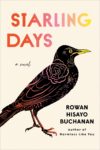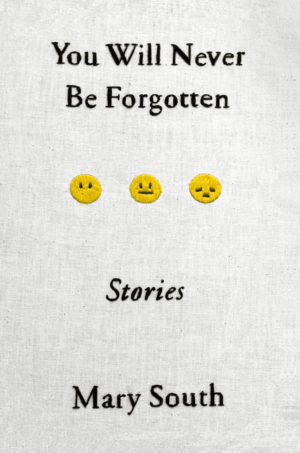The following excerpt is from Days of Distraction © 2020 by Alexandra Chang, used with permission by Ecco/HarperCollins.
Days of Distraction
The China I remember most is like this:
The apartment in Pudong. The tadpoles had sprouted legs, which meant they needed to be tossed. My sister and I poured them into the alley gutter, crying for the lost swimmers. There were too many. They drained away with the waste.
A woman held her baby, her arms outstretched, pleading and repeating to those who passed: Please take her. My mother watched from the window five stories up. She petted my brother’s head and said, Would you like a little sister today?
In summer, the air was thick and heavy, the dragonflies flew low by our thighs. It was enough to smother the wails of our losses. The alley was empty of people at night.
**
Back then, I didn’t understand the reasons for either—our departure or his staying put. For years, my mom said it was because she missed home and family. My dad said it was because he had to take care of things and to work. When we returned, he no longer had a car repair shop and we no longer had a house. They took us to an unknown town, Davis, and said here’s where we’ll live. We accepted because we had no choice. The explanations and stories shifted based on time and speaker. Money. Business mistakes. Greedy relatives. Lawsuits. Separation. Stress. Her mistakes. His mistakes. I still don’t know what truly happened, but at this point, does the truth really matter.
**
As for Davis, the beginning was not great. The sixth grade teacher introduced me as an immigrant from China. Though it was not entirely true, neither was it entirely false. I didn’t correct her. My sister and brother were placed into ESL classes until they could distinguish between “a stove” and “an oven,” though our mom never used the latter. The teachers made them name never-eaten dishes on a cartoon Thanksgiving table. I seemed to escape the classes out of age and luck, but none of us could escape Davis. It reminded me of the movie Pleasantville, of that 1950s TV town Tobey Maguire’s character escapes to. A made-up place in a made-up movie, far removed from my experience. I cried often in the first weeks; I wanted to go back—to San Francisco, or even China seemed like a better option at times. I fell asleep fantasizing about what life would have been like somewhere else.
**
One of my junior high teachers once said in class, Davis is full of the kind of liberals who claim they want to make the world a better place, but who will fight to the death to prevent a homeless shelter from being built in their neighborhood.
**
Davis, too, was the place of my family’s tectonic shifts. Divorce. Poverty. Domestic disputes. Charged, simple terms I hated, still hate, to use to describe those days. But I’m getting used to them. Both their ability to quickly summarize and their inability to cap- ture beyond a shallow essence.
**
But Davis is where I met and found J, who is listening intently to this story of his. Fear is primal. Fear sells. That was my mantra. “Fear sells.”
I hit pause on the phone. “What’s this guy talking about? What’s happening now in the book?”
“He’s selling a vaccine,” he says.
“For what?”
“For—wait, do you really want to know? Should I explain everything you’ve missed? Are you going to listen now?”
“Uh . . .” I think for a while. “No, I guess not. It only sounded interesting for a second.”
“It is interesting! I wish you’d stay awake and listen to it with me.”
“No, no, it’s okay. I don’t want to.” I press play again and go back to staring out the window or sleeping.
**
In Montana there are big mountains and fast-driving semis. I remember something a friend who grew up in the countryside once told me: If you want to fit in with rural people, wear camo. So much of it in Montana. At a highway rest stop we see a family of close to a dozen, various ages, each wearing at least one piece of camo. A teenage girl with her ponytail looped out the back of a camo baseball cap. A little boy in camo shorts. One man in a camo T-shirt, another in a camo button-up. A woman in a camo zip-up jacket. An old man and woman—grandparents—in matching camo sweatpants, and so on.
There are two opposing reasons animals in the wild have camouflaging abilities, a pop-science article tells me. One is to go unnoticed while hunting. The other is to hide in order to avoid being caught. When a tawny frogmouth senses danger, it fluffs out its feathers, freezes, and looks like a broken tree branch. Aristotle long ago noticed that the octopus “seeks its prey by changing its colour as to render it like the colour of the stones adjacent to it.”
**
As we travel deeper into the country, how best to hide myself? Will J’s presence provide a sufficient cloak? Where and when and how will who or what come out to attack?
**
He turns twenty-six. We celebrate at what looks like the fanciest restaurant in Butte. A group of men in suits sit at the table behind us, talking about regulations and meetings and numbers. There is thin green carpeting throughout. The candles on the table are fake.
J says he has a fantasy about us one day retiring to the Montana mountains. He grew to love the area after his family’s vacations here during his childhood. All day they hiked, swam, and fished. All activities I am not wholly against. But I can’t imagine living in Montana, at all, ever. Or, rather, I strongly dislike my imagination of living in Montana.
“I want to say nice things because it’s your birthday, but I’m never living in Montana.”
“Why not?”
“How many Asians do you think there are? Like none?”
He looks it up on his phone. “Says here that Asians make up zero-point-six percent of the population. So no, I guess it wouldn’t be that fun for you.”
“Zero. Point. Six.” I glance over at the men eating behind us. “And you don’t like the outdoors much, either.”
“It’s not the outdoors that are the main problem, although yes. I’m not in love with this whole camping, living-on-the-ground thing—but it’s cheaper for the trip, so whatever.”
**
Another drawback: tent sex needs to be very quiet so as not to disturb neighboring tent sleepers. But all of these camping materials— what were they thinking?—with the smallest of movements, the stuff produces the loudest, scratchiest noises.
**
I know this much about driving: It is not okay to close your eyes while on the highway, or under any circumstance, really, but I’m not behind the wheel, so the rule need not apply.
**
We don’t only date white men and women. But we are only dating white men and women right now. My sister is with a tall man with fluffy brown hair and a significant nose. My brother is “talking to” a rock climber with cropped blond hair. They are both young, so I think maybe they might not actually end up with a white person. Me, on the other hand, I have been with J for my entire adult life, and here I am in this car, so it seems that I will end up with him, a white man. J does not like that, again, I’m pointing this out.
“It’s as if being white is the one thing that defines me,” he says. “Well, it’s definitely a big part of what defines you,” I say.
**
He used to wear a shirt that had a stylized logo of the words stop racism! printed on the chest. I told him to stop wearing it. It made me very uncomfortable to be seen with him when he was wearing the shirt, and even if I was not with him, the thought of him being seen in that shirt at all made me uneasy. I couldn’t explain why and I still can’t quite explain it. Maybe I was worried that people would think he was with me because he was trying to stop racism? Maybe I was worried he was actually dating me to stop racism? Maybe it had to do with me knowing he would never stop racism by wearing a shirt that said stop racism!? Anyway, he can’t wear the shirt anymore because I threw it out when we moved in together. The act was a relief at the time. Now I feel mildly guilty for tossing something he liked, and with not at all a bad message.
**
It’s not that I didn’t think of our races when we first got together. Or haven’t thought of our races since. Of course I did and have. At first they were ghostly thoughts. Really, he wants me? How could this be? Why not her or her or her? Or is it because I’m—so ghostly was that thought it could not be completed. Those weren’t our problems. He wasn’t like that. We fell in love like young people do for the first time—fast, reckless, absolutely, and hard. But unlike most, we remained in love. In college, I made a list of all the couples we knew who believed they would stay together. I crossed each one off after they broke up. We are the last ones left.
When we talked about race, we did so mostly from a distance or as a joke, like something that could not touch the depths of this combined entity that was “us.” But I know we do not and cannot exist outside of it. I know I am guilty of avoiding, or not complet- ing, the conversations. That might still be our problem.
**
From an OkCupid FAQ:
Q: Are you saying that because I prefer to date [whatever race], I’m a racist?
On an individual level, a person can’t really control who turns them on—and almost everyone has a “type,” one way or another. But I do think the trend—that fact that race is a sexual factor for so many individuals, and in such a consistent way—says something about race’s role in our society. . . .
. . . you can actually look at people who’ve combined “white” with another racial description. Adding “whiteness” always helps your rating!
**
My sister once dated a ginger. A real serious ginger, bright orange hair and skin a landscape of freckles. J’s mom saw her and her boy- friend walking downtown together in our hometown when they’d come back for a winter break. After spotting them, she called J and said, “Those girls love gingers!” When he told me this, I responded, “You’re not a ginger, are you? You’re just very pale.”
**
Alexandra Chang is from Northern California. She currently lives in upstate New York with her husband and their dog and cat. Days of Distraction is her first book.
**
Music by CatLofe







